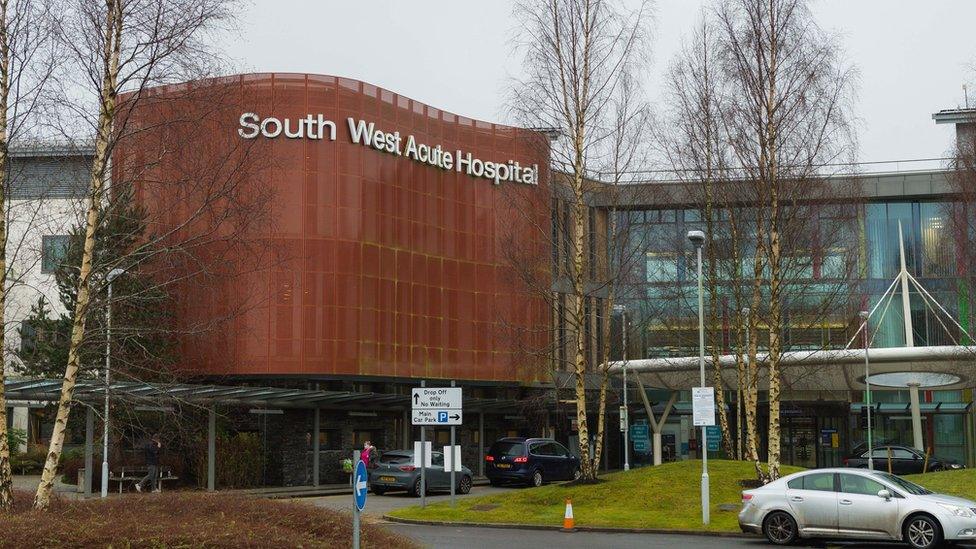SWAH surgical applicants did not meet criteria, trust says
- Published

No applicants for vacant consultant general surgeon positions at South West Acute Hospital (SWAH) in Enniskillen "met the shortlisting criteria", the Western Trust has said.
Last month, emergency general surgery was temporarily withdrawn from SWAH.
The trust said this was necessary to protect the public's safety after it had problems recruiting surgical staff.
Earlier, the trust confirmed it received a number of applications for four vacant posts.
Western Trust medical director Dr Brendan Lavery said it was "unfortunate" that none of the applicants met the essential criteria.
The jobs were advertised as trust-wide, which covers Londonderry, Omagh and Enniskillen.
Dr Lavery said the trust would look at re-advertising the posts and begin another round of recruitment in early 2023.
He said he was unable to give any specific information about what criteria the applicants did not meet, but that the essential shortlisting criteria were "relatively typical of all general surgical jobs across the UK".
Patients requiring emergency general surgery are taken to Altnagelvin, Craigavon or Sligo.
This type of surgery relates to the treatment of patients with conditions such as acute abdominal pain, infections, bleeding and trauma.
It includes operations such as removal of a gall bladder, appendix or part of the bowel.
If left unattended, these conditions could become life-threatening.
The emergency department and other services at SWAH, including obstetrics, continue to operate as normal.
Other, mostly lower-grade, surgeons remain on site, and stabilise patients before they are transferred to other hospitals by ambulance.
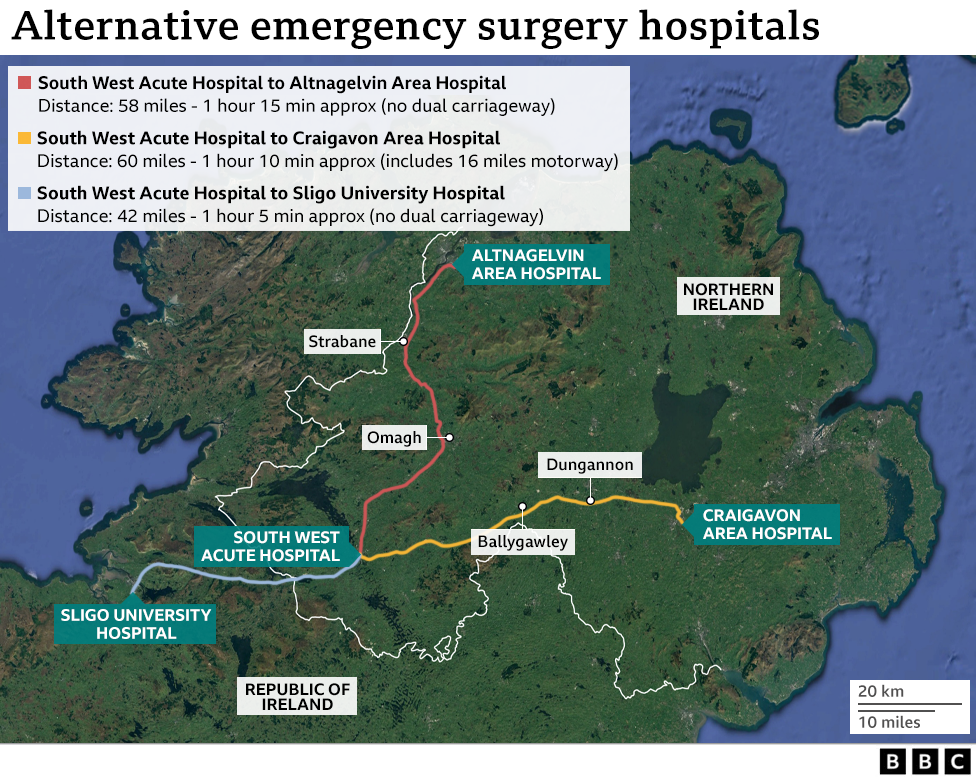
People will have to travel to other hospitals for emergency general surgery
The trust said that in the first week of reduced operations, 12 patients were transferred from SWAH to Altnagelvin.
The patients were all admitted directly to a ward where there are "ring-fenced" beds for SWAH patients.
Dr Lavery said the majority did not require emergency surgery but "ongoing patient management and investigation".
The trust said the majority of acute services at SWAH are unaffected and the emergency department will continue to treat more than 90% of people who attend.
Dr Lavery revealed there had been no decrease in the numbers attending the emergency department and there was no desire to downgrade services.
"We need that department to continue to see the 110 to 120 patients that it does on a daily basis," he added.
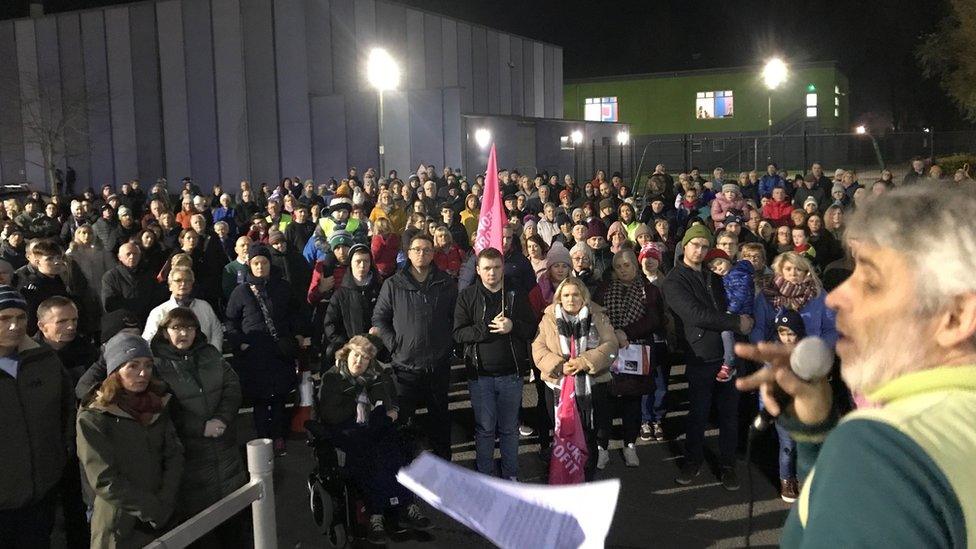
Members of the Save Our Acute Services campaign at a protest in Enniskillen earlier this month
The Save Our Acute Services campaign group, which has staged a number of demonstrations against cuts to hospital services, has raised concerns that tens of thousands of people could be left with too far to travel for treatment if services at the hospital are downgraded.
It said its research group had concluded that if SWAH was to lose its emergency department, 58,607 people in County Fermanagh would be left outside the "golden hour" for providing life-saving treatment.
The group said it had studied statistical sources as well as mapping data to analyse the increase in journey times and distance.
It added that people in Fermanagh would need to travel an extra 37 miles (60km) on average, and the roads infrastructure and levels of deprivation need to be considered.
But Dr Lavery said there was "a huge misconception" about the golden hour which he described as "a very outdated concept".
He claimed it had been used "in an inappropriate way".
"Effectively the golden hour, as it was talked about, it comes from the 1980s and is to do with trauma management, absolutely nothing whatsoever to do with general surgery," he added
He also said that the trust had been in discussions with the Helicopter Emergency Medical Service (HEMS) Air Ambulance to treat SWAH as a special case if required to transfer patients to the regional trauma centre in Belfast.
Related topics
- Published2 December 2022
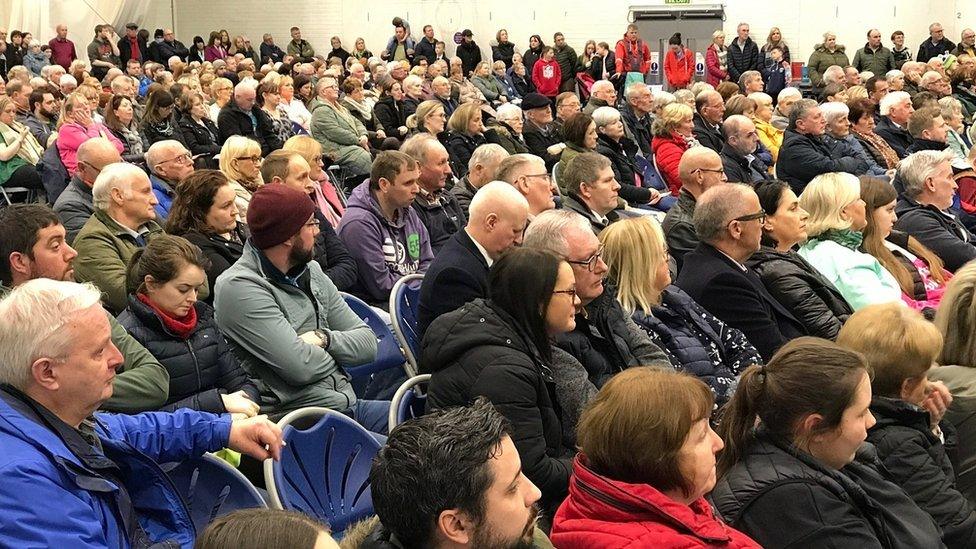
- Published18 November 2022
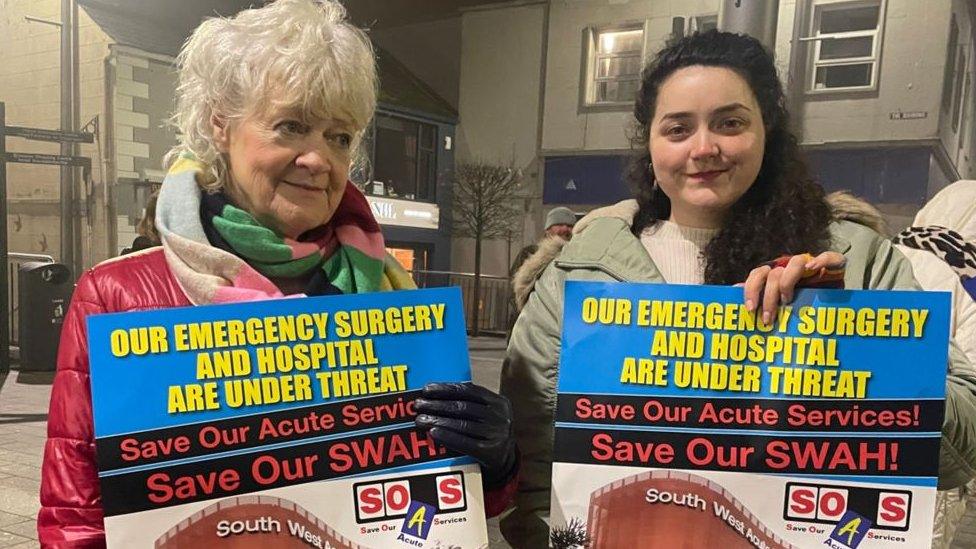
- Published17 November 2022
